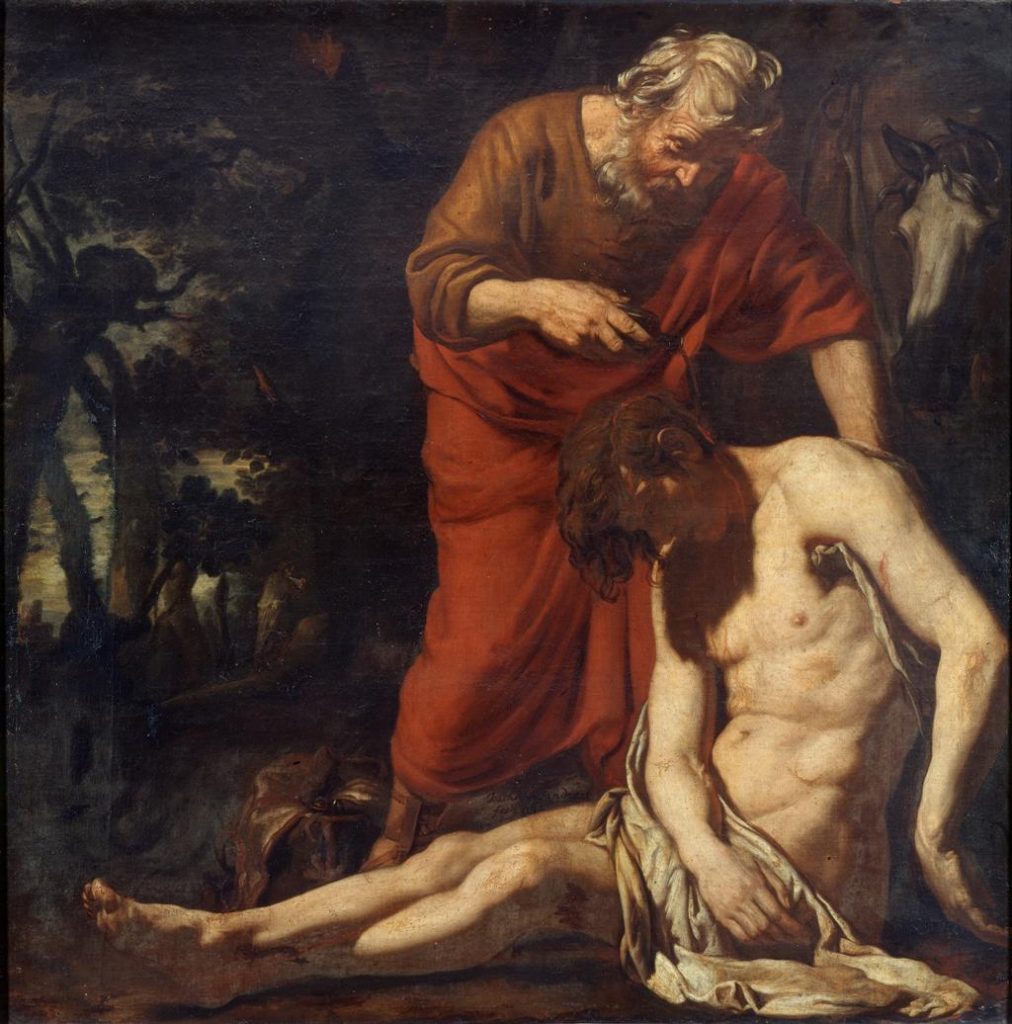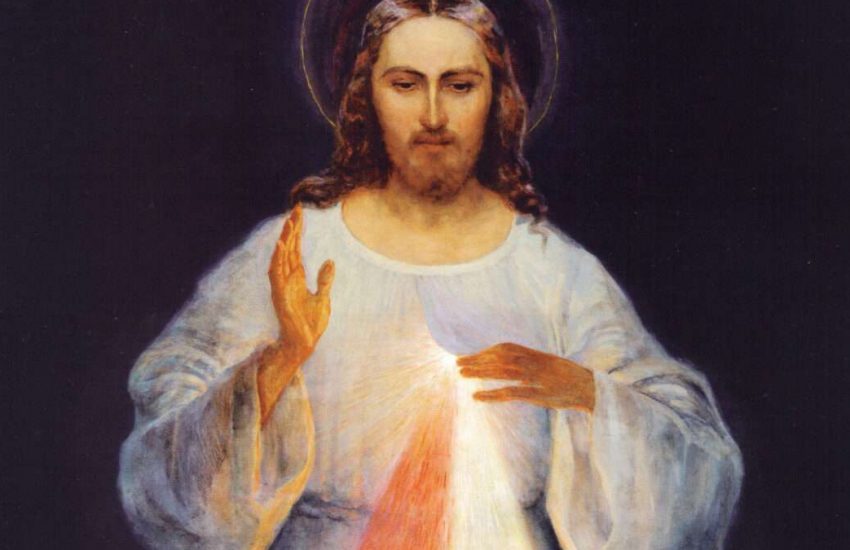A Law Not Remote
15th Sunday of Ordinary Time (C)
“Christ Jesus is the image of the invisible God.” This quote from the second reading this Sunday (Col 1:15-20) speaks to the heart of the incarnational mystery of our faith; that by taking on a human nature, God has fully revealed himself to us in Jesus Christ. But why would God choose to reveal himself to us as a man?
If you think about it, God could have chosen to reveal himself to us in any form he wished. He could have become incarnate as a lion, like C. S. Lewis’ Aslan in The Chronicles of Narnia. He could have appeared as a giant eagle, a humble lamb, or some fantastic creature we haven’t even imagined yet. But of these infinite possibilities, God chose to become man. Why?
The most obvious answer is because man needed saving. By uniting human and divine nature in his Person, Christ has reconciled humanity and divinity. As St. Athanasius put it, “The Son of God became man so that we might become God.” This truth is of fundamental importance to our faith.
But that’s not the only reason God revealed himself as a man. Some theologians speculate that even if man had never fallen, God still would have revealed himself in creation by becoming incarnate as a human being. The reason is because out of all God’s creatures, man alone is made in God’s image (cf Gen 1:27). This means that while all material creation in some way reveals something about God — his goodness, his beauty, his creativity, etc. — man alone is capable of revealing God himself.
There is something innate to our human nature that is a reflection of the divine. There is something God-like within each one of us. It may become obscured by sin and selfishness, but it is there nevertheless. It is part of who we are.
Something very near
This is why Moses speaks of God’s law as “something very near” to us in this Sunday’s first reading. These words are an important reminder that the path to holiness, far from being shrouded in mystery, is within the grasp of each one of us.
For this command that I enjoin on you today is not too mysterious and remote for you. It is not up in the sky, that you should say, “Who will go up in the sky to get it for us and tell us of it, that we may carry it out?” Nor is it across the sea, that you should say, “Who will cross the sea to get it for us and tell us of it, that we may carry it out?” No, it is something very near to you, already in your mouths and in your hearts; you have only to carry it out.
Dt 30:11-14
To become holy is to become like God. To be in friendship with God is to follow his will. We may often feel that God’s will is something imposed on us from outside. But here we are reminded that holiness is something that wells up from within us. To do God’s will is natural for us — it is sin that is unnatural. The way to become holy, and thus become divine, is to be more authentically human.
This is why God reveals himself fully to us not as a lion or a lamb, but as a man — the perfect man, free from any stain of sin and selfishness. In his glorification after the resurrection, Jesus shows us what man is capable of becoming when we are fully united with God. There is nothing in creation that resembles God more than sinless humanity.
The Law of Love
So it is of no surprise when Jesus is asked in this Sunday’s gospel reading, “What must I do to inherit eternal life?” (Lk 10:25), that he points us back to that command which Moses said is already in our hearts. To inherit eternal life, we must learn to love.
“You shall love the Lord, your God,
Lk 10:27
with all your heart,
with all your being,
with all your strength,
and with all your mind,
and your neighbor as yourself.”
In the parable of the Good Samaritan that follows, the one who most images God in the story is not the priest or the Levite, but the one who shows love for his neighbor — even though that one is an outsider, part of a group that didn’t worship God in the proper way according to Jewish law.

The entire law and the prophets are contained in these two great commandments of love: love God and love neighbor (Mt 22:40). The same can be said of the moral teachings of the Church today. Love is at the root of them all.
Not Relativism
This is not to say we are free to do whatever we want if only we have a “loving” reason for doing it. The Church has always warned against this relativistic moral reasoning. Relativism denies the existence of objective truth. It denies that there can be a right and wrong way to love. Here we must be careful. Because we are subject to sin and selfishness, it is very easy for us to convince ourselves that we have a loving reason to do the sin we want to do.
The moral precepts of the Church, like the ancient law of Israel, are there to help us learn to love rightly. Following the moral teaching of the Church helps us to learn to love like God in an unselfish way. This is the very purpose of the law — to help us become like God. And God is love (1 Jn 4:8). Therefore the purpose of the law is to help us learn to love.
Love Incarnate
Jesus embodies the law of love in his Person. He shows us what it means to be a human being fully in love with God and neighbor. Nowhere do we see this more clearly than when Christ is on the cross, praying for those who hung him there.
True love — divine love — doesn’t mean doing what is easy, and it certainly doesn’t mean always doing what you want. It means making a gift of yourself for the good of others. It means not only embracing your own cross, but embracing the cross of others as your own, sharing in their suffering the way that Christ shared in ours.
Carry it out
To love this way is difficult because it requires self-sacrifice, which does not come easily to our fallen nature. But beneath that sin which obscures it lies the image of God — the image of Love — that is our true identity. Selfless, sacrificial love is therefore something we must learn to do if we are to become truly ourselves.
This is difficult, but the lesson of today’s readings is that it is possible. Christ shows us the way, and he gives us every grace we need to follow him. This capacity for God-like love is something very near to us. It is already in our hearts. We only have to carry it out.



